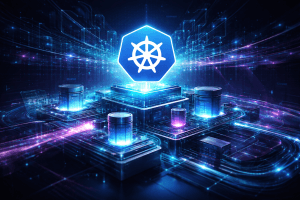The contact center industry is at a pivotal moment, and Cisco’s latest announcement of its Webex AI Agent represents a significant push to reshape customer service interactions. Announced at WebexOne 2024, this new offering signals Cisco’s ambitious bid to address the growing challenges in customer experience management while positioning itself at the forefront of AI-driven enterprise solutions with a view toward working aggressively to capture more market share.
Before I dive more fully into Webex AI Agent, I want to mention that this is one part of a multi-pronged plan, which centers on integrating AI into all Cisco products, focusing on three key areas: natively AI-infused products, a robust AI infrastructure (including low latency and high-performance networking), and AI security. The underlying fabric of Cisco’s AI strategy is based on data and includes AI-ready data centers, future-proof workplaces, and resilience against outages are business mission critical.
Webex AI Agent: Strategic Timing and Market Context for
The timing of Cisco’s announcement around Webex AI Agent is particularly noteworthy. As enterprises grapple with rising customer service costs and increasing consumer expectations for immediate resolution, the market is ripe for AI-powered solutions that can meaningfully reduce wait times and improve first-contact resolution rates. The need to deliver personalized customer journeys is a reality today, and the ability to provide continuous engagement and the ability to transact on multiple channels — you know, all the places that customers are — are table stakes. And while AI is and will play an outsized role in reimagining customer experiences, it will play an equally important role in reimagining employee experiences — the ability of AI to deliver on these fronts is invaluable.
While many contact center solutions are infusing AI into their platforms, it’s safe to say that we in the nascent stages with much room for improvement. That’s what makes these advancements from Cisco and its Webex AI Agent well-timed and exciting to see.
What sets Webex AI Agent apart is its focus on conversational intelligence and immediate action-taking capabilities — a departure from the often-frustrating automated systems currently in place. Another differentiator is Cisco’s long-standing reputation for baking in security at a foundational level, across all products and solutions, which provides a foundation of trust for AI-driven interactions that business leaders demand.
I had the opportunity to see several demos of Webex AI Agent in action, with a human interacting with an agent that I had difficulty telling was in fact an agent and not a human. In each instance, customers asked a variety of questions, sometimes even interrupting the agent or quickly switching topics, and yet the AI agent managed to seamlessly navigate the conversation and deliver the results needed with ease. Don’t take my word for it, check out this AI Agent in action here:
great demo. check out how the virtual agent was lifelike and even handle interruptions and had integrations with back office systems @Webex #webexone @anurag_dhingra pic.twitter.com/k1kGvGndJH
— Zeus Kerravala (@zkerravala) October 23, 2024
Guardrails in place allowed the agent-driven conversations to stay within certain pre-set boundaries — which you’ll notice when the user above asked about the weather, which was obviously not included as information available to be utilized by the AI agent. This which should help organizations be comfortable when embracing the agentic approach. I’m not going to lie — it was incredibly impressive and is a look at the future of customer service and experience that I am thrilled to see.
Webex AI Agent Studio: Designed to Help Train and Deploy AI Agents with Ease
The Webex AI Agent Studio is part of Webex AI Agent and represents a significant leap forward in democratizing AI implementation within contact centers. It features both an intuitive interface as well as a guided workflow approach, by which business users can easily build, customize, and deploy AI agents to match their specific industry requirements and brand voice without requiring deep technical expertise.
By enabling business users and IT administrators to deploy AI agents quickly, Cisco is addressing one of the major barriers to AI adoption in contact centers: implementation complexity. The ability to deploy an AI agent in minutes could dramatically accelerate the technology’s adoption rate, especially among mid-sized enterprises that may lack extensive technical resources.
I particularly like the testing and optimization capabilities of AI Agent Studio, which are designed to help test and analyze agent performance with a view toward continuous improvement. Users can simulate customer interactions in real-time, analyze conversation patterns, and fine-tune responses before deployment. This iterative approach ensures that AI agents are thoroughly vetted and optimized for customer engagement before going live. The platform also includes comprehensive analytics tools that provide insights into AI agent performance, helping organizations continuously refine their automated customer service strategy.
The AI Agent Studio platform’s drag-and-drop functionality allows users to easily map customer journeys, define conversation flows, and establish business rules that govern AI agent behavior.
On the security front, I would expect security and compliance to be paramount in the design of AI Agent Studio given Cisco’s long reputation on the security front and the product team for Webex AI Agent Studio did not disappoint. The platform incorporates enterprise-grade security features and maintains compliance with industry standards, ensuring that sensitive customer data remains protected throughout all AI-driven interactions. Additionally, and as I briefly mentioned earlier, the studio features built-in governance controls allow organizations to establish clear parameters for AI agent behavior, ensuring consistency with company policies and regulatory requirements.
What sets the AI Agent Studio apart is its seamless integration with existing Webex Contact Center infrastructure. This integration enables organizations to leverage their current investment in Cisco technology while adding sophisticated AI capabilities and upleveling their teams along the way. The platform’s scalability ensures that as customer interaction volumes grow, AI agents can efficiently handle increased demand without compromising performance or response quality.
Technical Innovation and Integration
As I briefly touched on earlier, the most compelling aspect of Cisco’s approach is the native integration of AI within the entirety of the Webex ecosystem. Rather than treating AI as an add-on feature, Cisco has positioned it as a foundational element of their customer experience strategy. This architectural decision could prove crucial for enterprises seeking seamless integration between AI and human agents.
Market Impact and Competition
This move and advancements with the Webex AI Agent and AI Agent Studio are significant, positioning Cisco more directly against both traditional contact center vendors and newer AI-first customer service platforms. The company’s emphasis on native AI integration, combined with its extensive enterprise relationships and established Webex platform, creates a compelling value proposition. However, this is a crowded space and competitors are most certainly not sitting still on the AI front. Cisco’s success with Webex AI Agent and contact center in general will largely depend on how well the technology performs in real-world scenarios when it becomes generally available in Q1 2025. The good news is that this is a booming market and plenty of opportunity for Cisco.
Potential Challenges and Considerations
Several factors will be critical to watch:
Enterprise Adoption. While the technology looks promising, the true test will be how quickly enterprises can integrate and effectively utilize these AI capabilities within their existing workflows. From some of the customer stories I was privy to throughout the past couple of days, the ease of deployment, myriad integrations, and ease of use are some key differentiators driving buying decisions in Cisco’s favor.
AI Performance. The success of the Webex AI Agent will heavily depend on its ability to handle complex customer interactions without creating frustration or requiring frequent human intervention. We are early days on that front, but based on what I’ve seen thus far from the Webex team, they seem to be nailing this.
ROI Metrics. Cisco’s claim of a 39% improvement in CSAT scores is notable, but organizations will need to see clear evidence of reduced operational costs and improved efficiency metrics. One of the features I particularly liked was a dashboard that provides insights extrapolated from calls by way of AI, showing the most common customer issues and drivers of contact center outreach, which then allows organizations to put proactive measures in place to address and mitigate those issues. This takes the guesswork out of what’s happening across the contact center and adds some pretty significant value. Cisco needs to do more of this, proving efficacy with data points that measurable drive business value.
Context Summaries, Automatic CSAT Scoring, Agent Wellness
The introduction of features like Context Summaries and Automatic CSAT Scoring suggests Cisco is thinking holistically about the future of customer service. The ability to score 100% of customer interactions, rather than relying on limited survey responses, could provide organizations with unprecedented insight into their customer service performance. I see other solutions providing this functionality, so I don’t see it as a massive differentiator, but rather an important and expected part of the solution functionality.
Webex has long been a front runner when it comes to monitoring agent wellness, which I think is incredibly important for what is undoubtedly a very stressful job. AI-powered insights that alert supervisors to a need for a break, or a transition to another customer opportunity, or even indicators of employees who might need additional training all speak to a passion for employee experience that I find attractive and important in today’s workplace.
Bottom Line
Cisco’s Webex AI Agent represents a significant step forward in the evolution of contact center technology. While the market has seen numerous AI-powered customer service solutions, we are still in somewhat early days in terms of really amazing functionality. Cisco’s comprehensive approach — combining conversational AI, easy deployment, and integrated analytics — positions it well in the enterprise market.
The success of this initiative will likely depend on three key factors: the actual performance of the AI in handling complex customer interactions, the ease of implementation through AI Agent Studio, and the ability to demonstrate clear ROI for enterprise customers. If Cisco can deliver on these fronts, the Webex AI Agent could indeed fulfill its promise of transforming customer service experiences.
A bigger part of the success equation here is for Webex to capture the mindshare of decision makers more broadly than the company has thus far managed. This is not a technology issue, the technology is really, really impressive. It’s a marketing and comms issue, and Cisco must do a better job of educating the market about these solutions. Showcasing real world customer experiences so that ITDMs can see that others have the same issues, concerns, challenges, etc., and hearing why they selected the Webex solution, the ease of deployment and integration they experienced, and the strategic support they have received from the Cisco team are incredibly compelling.
Cisco has it all: the natively AI-infused products, a robust AI infrastructure, and AI security — there’s a massive market opportunity here, Cisco needs to go get it.
Webex AI Agent and the AI Agent Studio will be generally available in Q1 2025 for cloud customers, with customer trials for on-prem customers happening in Q2 2025.
See more of my coverage here:
Grammarly’s New ROI Tools: A Game-Changer for AI Measurement in Enterprise Comms
Tracer’s Agentic AI Aims to Revolutionize Brand Protection: A Game-Changer in Digital Security
Zoho Raises the Bar in Self-Service BI with AI-Powered Zoho Analytics Platform



